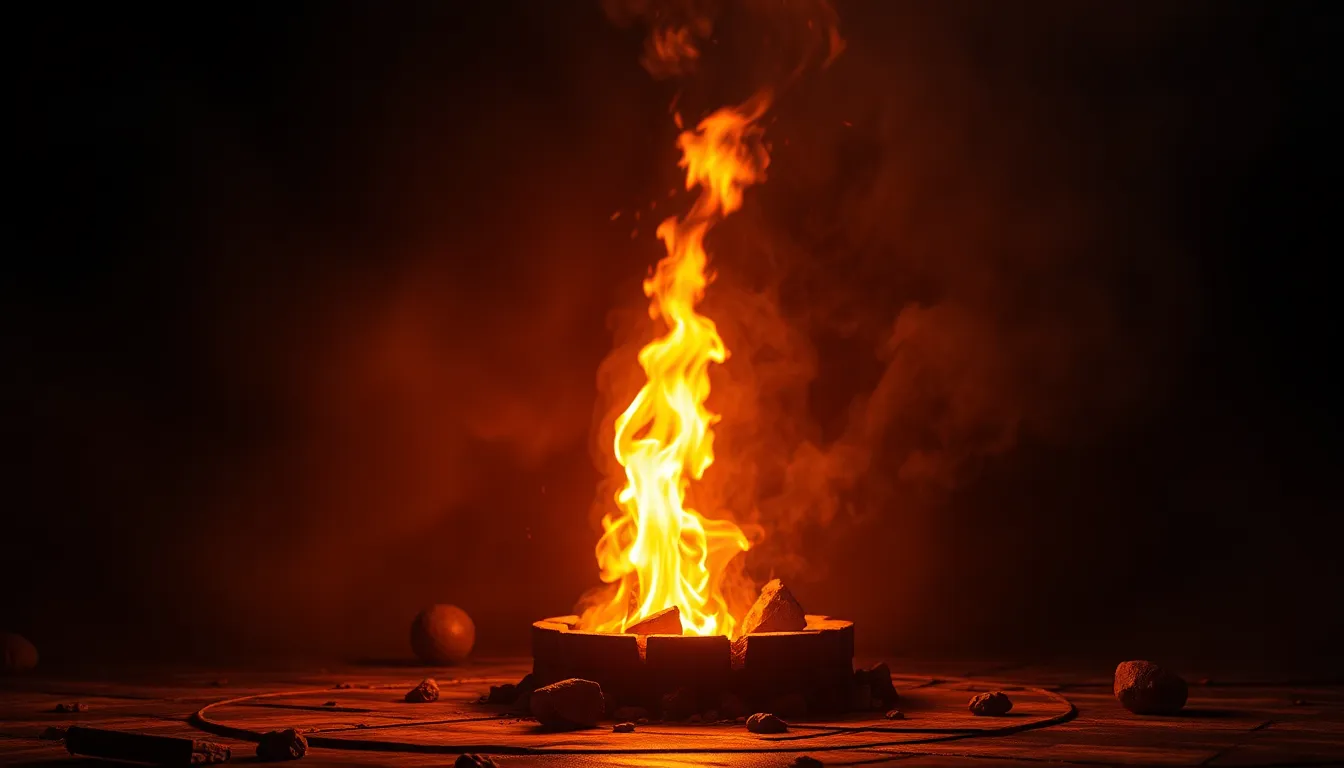The Significance of the Sacred Flame in Rituals
I. Introduction
The Sacred Flame has held a profound significance across various cultures and religions throughout history. Defined as a flame that is imbued with spiritual meaning, it often represents the divine presence or the essence of life itself. The Sacred Flame serves as a powerful symbol of transformation, purity, and renewal, and it is integral in rituals that aim to connect the physical and spiritual worlds.
This article explores the historical context, symbolism, and the diverse roles of the Sacred Flame in major world religions, as well as its cultural variations and modern interpretations. By delving into the multifaceted aspects of the Sacred Flame, we aim to highlight its enduring relevance in contemporary society.
II. Historical Context of the Sacred Flame
The origins of the Sacred Flame can be traced back to ancient civilizations, where fire was revered not just for its practical uses but also for its spiritual significance. Early cultures viewed fire as a gift from the gods, a source of warmth, light, and protection.
Over time, the symbolism of the Sacred Flame has evolved, adapting to different cultural contexts and spiritual beliefs. Notable historical rituals involving the Sacred Flame include:
- Fire worship in ancient Persia, where Zoroastrians maintained the Sacred Flame in temples.
- The Olympic Torch ceremony, which symbolizes purity and the spirit of competition.
- Votive offerings of flames in various ancient Egyptian rituals to honor the gods.
III. Symbolism of the Sacred Flame
The Sacred Flame embodies several key symbolic meanings:
- Representation of purity and divinity: The flame is often seen as a manifestation of divine presence, representing the purity of spirit and the connection between the earthly and the divine.
- Symbol of transformation and renewal: Fire has the ability to consume and transform, making it a powerful symbol of change and rebirth.
- Connection to the elements and nature: Fire is one of the four classical elements, and its presence in rituals signifies a harmonious relationship with nature.
IV. Sacred Flame in Major World Religions
Across major world religions, the Sacred Flame takes on unique significances:
- Hinduism: In Hindu culture, Agni, the fire god, is central to rituals. The fire is considered a purifying agent, and offerings made to Agni are believed to carry prayers to the heavens.
- Buddhism: The Eternal Flame symbolizes enlightenment and the light of wisdom. In many Buddhist traditions, a flame is lit to represent the light of the Buddha’s teachings.
- Christianity: The flame plays a crucial role in Christian rituals, particularly during Pentecost when the Holy Spirit is said to have descended upon the apostles in the form of tongues of fire.
V. Cultural Variations of the Sacred Flame
Various cultures have their own unique interpretations and practices surrounding the Sacred Flame:
- Indigenous practices: Many Indigenous cultures use fire in rituals to honor ancestors and the earth, viewing it as a sacred element that connects them to their heritage.
- Ancient Greek and Roman traditions: The flame was significant in temples dedicated to the gods, such as the Vestal Virgins who maintained the sacred fire of Vesta.
- Modern interpretations: Today, many contemporary spiritual practices incorporate the Sacred Flame in meditation and rituals, emphasizing its role in healing and transformation.
VI. The Use of the Sacred Flame in Modern Rituals
In contemporary society, the Sacred Flame continues to be an integral part of various ceremonies:
- Ceremonial uses: The Sacred Flame is often present in weddings, memorials, and festivals, symbolizing love, remembrance, and celebration.
- Spirituality and meditation: Many individuals use the Sacred Flame as a focal point in meditation, seeking comfort and enlightenment through its presence.
- Environmental considerations: As awareness of ecological impacts grows, many practitioners are reflecting on ethical fire use, ensuring that rituals are conducted sustainably and respectfully.
VII. The Psychological and Emotional Impact of the Sacred Flame
The presence of the Sacred Flame has a profound psychological and emotional impact on individuals and communities:
- Source of comfort: The glow of a flame can evoke feelings of warmth, safety, and connection, offering solace in times of distress.
- Group dynamics: Gathering around a fire fosters a sense of community and belonging, strengthening social bonds and shared experiences.
- Fostering community: Rituals involving the Sacred Flame often bring people together, creating a collective sense of purpose and unity.
VIII. Conclusion
In conclusion, the Sacred Flame holds significant importance in rituals across various cultures and religions. It represents purity, transformation, and a deep connection to the divine and nature. As we reflect on its relevance in today’s society, it becomes clear that the Sacred Flame continues to inspire and unite individuals and communities through shared beliefs and practices.
As we honor and understand the Sacred Flame in our cultural practices, we recognize its enduring power to illuminate our paths, both literally and metaphorically, fostering connection and continuity through the ages.




